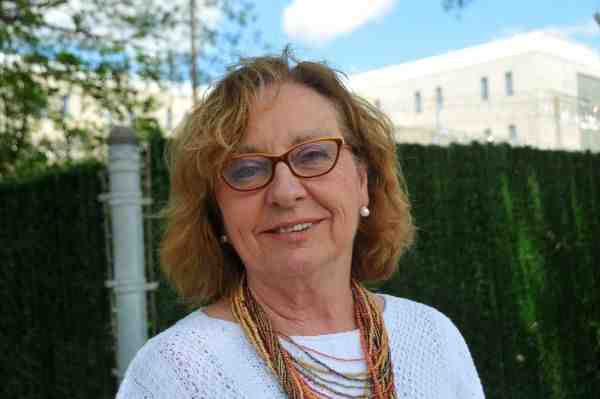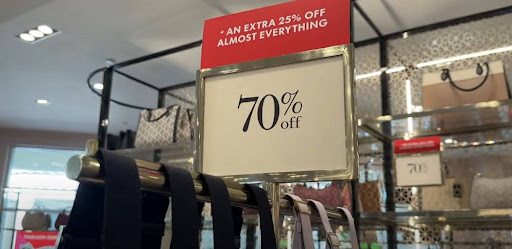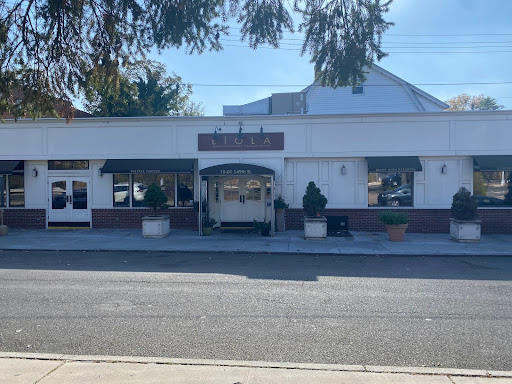
For many, working in a correctional facility would be viewed as a position in which people want to put in their day’s work and get out as soon as they can. For Marybeth Zeman, however, the case is quite the opposite.
Zeman, a transitional counselor at the Nassau County Correctional Center, found a way to embrace her job while incorporating her educational background. She has done so through utilizing a master’s degree in library science obtained through the Laura Bush scholarship received from St. John’s in 2009.
The degree, along with her work at the correction facility, enabled her to focus in on the connection.
“When education that’s founded on some kind of value system as opposed to being founded on just monetary gain, I think it’s much easier to incorporate your education into a variety of things,” Zeman said.
After her stint teaching in public education, Zeman shifted focus to her family at home, while still picking up some work as an adjunct at Queensborough Community College.
“I taught composition for ESL students for a good 10 years before returning to work,” she said. “I did that and I realized that I really enjoyed doing that.”
This prompted Zeman to hit the books again. She obtained her master’s in special education to maintain her certification, followed by a master’s degree in ESL to become a certified teacher in that field.
“I was an ESL teacher for a good 20 years and I found that more and more, I was utilized in the library and technology with my ESL students,” she said.
It was during this time that she received encouragement from a friend to apply for the aforementioned Laura Bush scholarship at St. John’s.
57 years old at the time she applied for the scholarship, Zeman was quite the non-traditional applicant.
“In a million years I did not think I’d be chosen because of my age, and in any case, I was selected for the scholarship.”
After obtaining her master’s degree from St. John’s in 2009, Zeman found a position at the Nassau County Correctional Facility, where she became a transitional counselor in a high school program that the school she works at ran there.
“When I arrived at the correctional facility, I thought I was going to be the transitional counselor, and what I discovered was a school that was absent a library,” she said. “So it was almost as if God had put me in the right place at the right time and I was showing up with the right credentials.”
Zeman discovered a situation of incarcerated young men, ranging from 16 to 20 years old, who were in desperate need of material to read. The inmates were motivated to escape their misfortune and sought the comfort of books.
“The irony was that you had [young] men who had otherwise failed miserably at school, were incarcerated for a variety of reasons and for the first time in their lives [they] had this drive that they want to read,” Zeman said.
According to Zeman, when technology is taken away, all that is left for these inmates to do is to read. The boys grew to value education and reading, and it was evident through their behavior in class.
Zeman conveyed what jail is like for these youths.
“I know that I’m leaving at the end of the day, but I am very aware of when I’m working there, how much your freedom is relinquished,” Zeman said.
Zeman stressed how significant reading became for the boys, as it represented entertainment and an ability to better each of them.
“The greatest punishment in jail is boredom, having nothing to do all day,” Zeman said.
Her education in library science is put at the forefront through its sub-element of outreach services, where she can guide these young men to improve their lives.
“They look for me now, coming in and out with that book cart, more than coming in with a file folder and saying, ‘Come on sit down, let’s see how you are doing,’” Zeman said. “I had more interaction and broken down more walls of isolation by bringing in that book cart than I ever would pulling a kid out.”
Zeman has been able to guide them toward changing their views of the world and alter their way of life.
Her work at the facility has also inspired her to write a book, “Tales of a Jailhouse Librarian,” which details her experiences with some of the different youths she has consulted during her time at the Nassau County Correctional Facility.
Zeman is determined to continue efforts to guide these youths to brighter futures, as she considers it a primary responsibility of her job as a librarian.
“A basis of being a librarian is to seek outreach services, to provide services for those that are unable to seek the information themselves,” Zeman said. “That is what I most gravitated to.”







